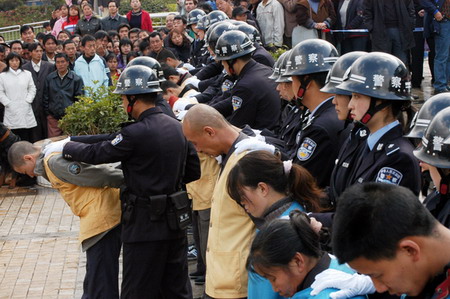����ǰ��������ֵ��Χ-�����ϸ�һҽԺ�������ϸ�һҽԺ,��������ר�ƺ�ҽԺ,������й��ʲô��������,���������δ����Ҫ����,���Ͽ��п�ҽԺȥ�ĺ�,�������Ϻ��Ѳ���,����������ʱ�䲪��
��������ǰ��������ֵ��Χ�����Թ��ܼ��˵����Ʒ���,����غ�����͵�,�����еĺܿ��侫,�������������ô������,��������ҽԺ�Ķ���,������й�˵�������Щ�취,���������������
���� ����
����The Centers for Disease Control (CDC) says depression affects nearly 8% of people at any time. The numbers of those who get treatment are far lower. For some, they don��t recognize the symptoms or they don��t want to take medication. Wendy Moreno is among those who struggle with depression. After a traumatic experience four year ago, she decided she needed professional help. She went to therapy and got on medication, but she didn��t feel it was working.��I was just at a point where I wanted to try something new,�� said Moreno. Her therapist told her about 569
����The Army, for the first time, will send soldiers from one of its new training brigades to Africa in the coming weeks, expanding the use of the new specialized units as the Pentagon looks at possible troop cuts on the continent.The decision to send a couple hundred soldiers from the 1st Security Force Assistance Brigade has been in the works for months. And it��s the next step in the Army��s broader plan to use the training teams to free other brigades who had been working as advisers to move on to other combat jobs.The plan comes as Defense Secretary Mark Esper eyes potential troop cuts in Africa. as part of a global review aimed at directing more focus on Asia. U.S. lawmakers and allies have voiced opposition to any cuts, and sending the new training teams isn��t likely to affect the overall troop numbers in Africa, at least initially.For Brig. Gen. Scott Jackson, the deployment to Africa means preparing his soldiers for a new type of mission. As commander of the 1st SFAB, he helped build the inaugural training brigade, and took it to Afghanistan for its first deployment in 2018. Two other SFABs have deployed to Afghanistan since then, so Jackson will now be the first to take the trainers to a new region �� one that will be dramatically different from their war-zone mission.In Africa, his soldiers won��t have the vast U.S. and coalition support system with its network of bases, supply chains and readily available helicopters and armored vehicles.��We won��t have the military structure we had in Afghanistan,�� said Jackson, in an Associated Press interview from Ethiopia. The soldiers, he said, may be in downtown areas of cities rather than military-equipped forward operating bases. And they��re likely to be moving about in Ford Broncos, rather than armored trucks.Part of their training for the mission has focused on improving their ability to sustain themselves for longer periods of time on their own, without the benefits of nearby military storehouses filled with food, supplies, ammunition and medical equipment.��You can��t get anywhere fast in Africa,�� said Jackson, who was attending a major Africa training exercise and getting to know some of the military and national leaders his soldiers will be working with. He said they also got instruction on how to better work with embassies and their staffs.At the same time, his medics had to take a two-week tropical medicine course so they can be ready to deal with an entirely new set of diseases, bugs and other elements the soldiers will be exposed to.Jackson was tapped in 2017 to lead the first Security Force Assistance Brigade, after Gen. Mark Milley �� then chief of staff of the Army �� launched the program to create permanent training teams that could be deployed around the world. Milley is now the chairman of the Joint Chiefs of Staff. Each SFAB includes a little more than 800 soldiers.The goal is to use the teams to advise and assist security forces in other countries, and take the pressure off other Army brigades that have been used to do training but are needed for other national security missions. In addition to the three brigades that have already deployed, three others, including one in the National Guard, are in various stages of development and training.Army Gen. Stephen Townsend, commander of U.S. Africa Command, specifically requested the SFAB, and Army Secretary Ryan McCarthy said it��s the right move.��The key is what is the right capability you��ve got to have in there, and the SFAB is uniquely suited for this,�� said McCarthy. ��Smaller elements have a huge impact on who they��re training.��Esper said that roughly 200 soldiers from the 1st SFAB will replace soldiers from the 101st Airborne who are returning home from Africa, ��so that they can train for high-intensity conflict,�� in line with the National Defense Strategy. He provided no estimate of the number of 101st infantry soldiers will come home from Africa, but said the net result would be roughly a wash, numerically.There are between 6,000 and 7,000 U.S. forces on the continent at any one time, including about 4,000 that are at the U.S. base in Djibouti. Other forces train and advise local forces and conduct counterterrorism missions against militants, such as al-Shabab in Somalia and other al-Qaida-linked groups and Islamic State affiliates in west and north Africa.��My aim is to free up time, money and manpower around the globe, where we currently are, so that I can direct it�� toward Asia or return forces to the United States to improve combat readiness, Esper said. But he has also assured nervous allies that the U.S. won��t totally withdraw from Africa.Members of Congress have also pushed back against any troop reductions.��Our small military presence across Africa is meaningful, and provides significant return on investment,�� said Sen. Jim Inhofe, R-Okla., chairman of the Senate Armed Services Committee. Inhofe led a delegation of senators to Africa this month to discuss the importance of continued military cooperation in the region. They visited Uganda, Ghana and Mauritania.��Our partners are grateful for our leadership,�� Inhofe said. ��Downgrading our investment now would only increase our risk and make future competition or potential conflict more costly down the road.��Under current plans, about one-third of the training brigade will deploy to various countries in Africa. Officials will not disclose the countries, but acknowledge some will continue an ongoing training mission with the Djibouti military.The remainder of the brigade will continue to reset and train in the U.S., and then those team would be available to rotate into Africa to replace the first group when it comes home. Jackson said he doesn��t know exactly how many months the teams will be in Africa, but it��s likely to be less than the brigade��s nine-month deployment to Afghanistan.____AP National Security Writer Robert Burns contributed to this report. 5939
���� ����
����The oldest of the five teens accused of throwing a large rock off a Michigan overpass and causing a man's death will spend 15 additional months in jail.Kyle Anger, who turns 20 this week, was sentenced Tuesday to 39 months in prison. He will get credit for the 740 days he's spent in jail since his arrest two years ago.Anger pleaded guilty to second-degree murder.In October 2017, 32-year-old Kenneth White died after a 6-pound rock crashed through his windshield as he drove on I-75 in Michigan.Anger planned the prank. He reportedly loaded up his pickup with rocks and threw the rock that killed White.Four other teens charged in the case accepted plea agreements. 679
����The family that owns well-known consumer brands like Krispy Kreme doughnuts, Keurig Dr. Pepper and Panera Bread say their Nazi ancestors used slave labor during World War II.The Reimann family, which owns the controlling stake in JAB Holdings and is reportedly one of the richest families in Germany, will donate �10 million, or million, to a yet-undisclosed charity after a three-year investigation that it commissioned discovered details of their ancestors' behavior.A family spokesperson said Albert Reimann Sr., who died in 1954, and Albert Reimann Jr., who died in 1984, used Russian civilian prisoners and French prisoners of war as forced labor in their factories during the war, and that they were anti-Semites and avowed supporters of Adolf Hitler.The investigation also found that Reimann Sr. donated to Hitler's paramilitary SS force as early as 1931.Investigators also found a letter from Reimann Jr. to a local mayor complaining that the French prisoners of war weren't working hard enough and should be in prison."Reimann Senior and Reimann Junior were guilty. The two businessmen have passed away, but they actually belonged in prison," said Peter Haft, the chairman and one of the managing partners of JAB Holdings, in an interview with German publication Bild. "We were ashamed and white as sheets. There is nothing to gloss over. These crimes are disgusting." A family spokesperson confirmed the quote to CNN Business.The family expects to publish a book next year that will detail the ties.JAB Holdings, which is based in Luxembourg, also owns Peet's Coffee, Pret A Manger, Einstein's Bagels and Coty.The company acquired most of its best-known brands within the last several years. It took a stake in Coty in the early 1990s, and is the beauty company's largest shareholder. 1810
����The Erie County Sheriff's Office in Ohio have arrested a man accused of escaping a police cruiser after allegedly having sex in a hot tub. According to a police report, deputies responded to Kalahari Resorts around 8:15 p.m. Tuesday after a lifeguard reportedly caught a man and woman allegedly having intercourse in a hot tub.Security told deputies Kamden Mack, 25, became "irate" after being confronted by the lifeguard. Mack told deputies he did not know why security was evicting him, then swore at security officers, according to a report. Mack and the woman, Taylor Coats, 22, denied the accusations. Mack and Coats were told by deputies to gather their belongings and leave the property, according to the report. Sheriff's deputies left the pair with security and were getting to ready leave when they were informed that Mack and Coats tried running from security officers. Security officers captured Mack and held him on the ground when deputies arrived, according to the report. Deputies had to pull Mack into the back of a cruiser after he allegedly refused to go inside. After Mack was in the cruiser, one deputy attempted to locate Coats, while the other stayed with Mack. At this time, Mack was able to open the passenger door and started running toward the convention center, according to the report. Deputies eventually caught up to Mack and tackled him to the ground. He was then placed inside of a patrol vehicle with a working safety lock. Deputies arrested Coats after security found her in her hotel room. Mack was charged with felony escape, misdemeanor persistent disorderly conduct and criminal trespassing. Coats was charged with misdemeanor persistent disorderly conduct and criminal trespassing. 1734


